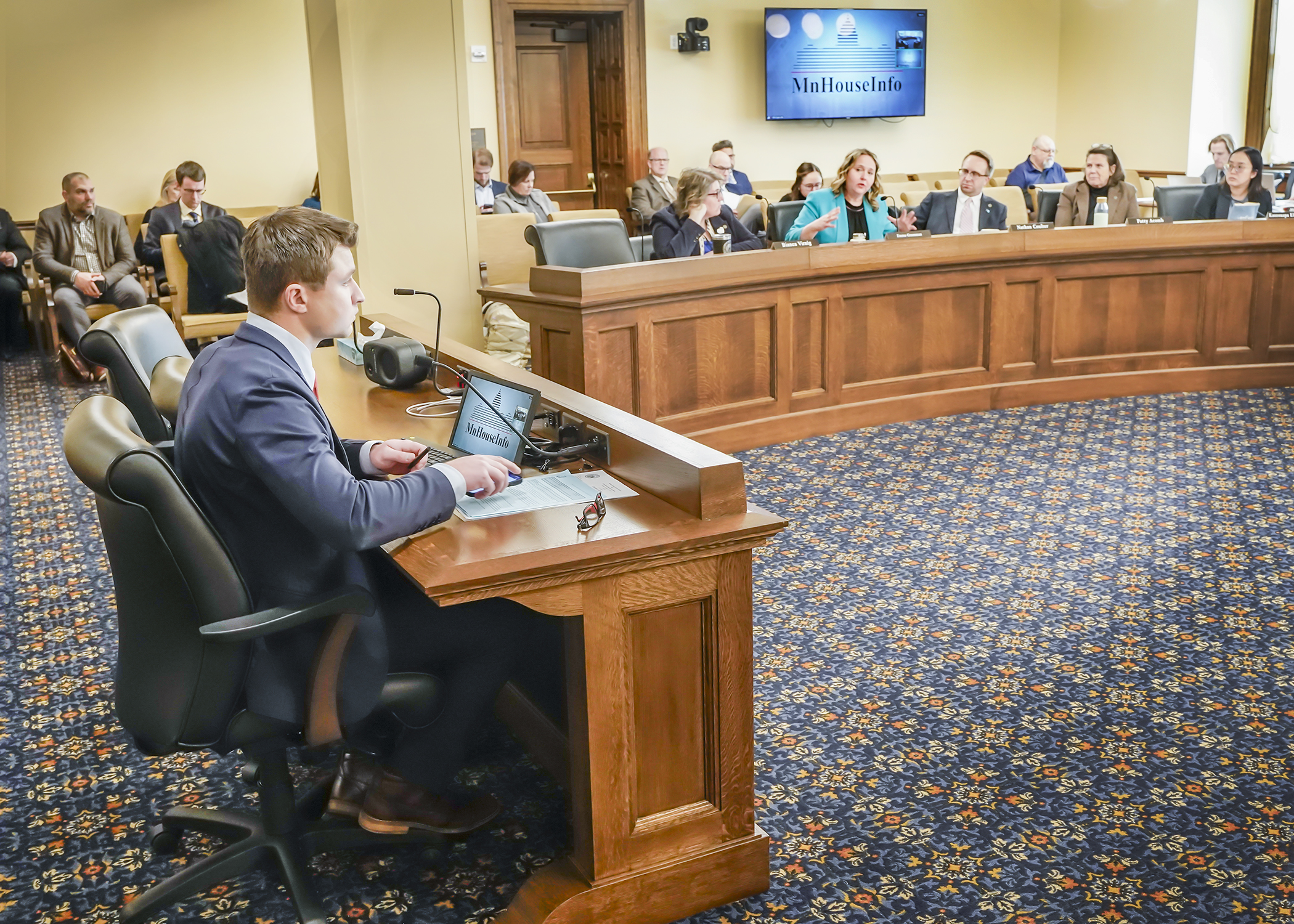State-funded organizations could be barred from making political contributions

Rep. Elliott Engen (R-White Bear Township) believes there is a conflict of interest when a nonprofit or other organization receives state funding, then is allowed to donate that money as a political contribution to a friendly candidate.
“The bill before you today would simply ensure that the tax dollars received by nonprofit organizations are not being spent on influencing the outcome of elections, but rather, being used to benefit the public good,” he told the House Elections Finance and Government Operations Committee Monday.
Engen sponsors HF72, which would prohibit any organization receiving state funding, including nonprofits, from making political contributions or expending money for a political purpose.
The bill was approved 6-5 on a party-line vote and sent to the House Floor.
Engen said the bill would return political influence in the state to voters rather than organizations.
“This bill would bring to heel a large portion of the unethical and irresponsible dark money campaign apparatus that voters on both the left and the right have agreed needs to end,” Engen said.
Rep. Emma Greenman (DFL-Mpls) said the bill would repeat laws already on the books because certain nonprofits already cannot make political contributions.
“We make grants to 501(c)(3)s; they’re already prohibited from doing that by federal IRS law,” she said. “They cannot spend money on elections. That’s what makes you a tax-exempt charity.”
Engen countered that current law allows a 501(c)(3) to funnel state money to a third party to make a political donation, and the bill would end that practice.
“It is a little bit of a Catch-22,” he said. "They’ll use a different apparatus to continue that influencing of elections.”
Democrats unsuccessfully offered three amendments that would have:
- prohibited all corporations and any entity receiving a state tax deduction or tax credit from making political contributions;
- removed the state funding language and make it illegal for any entity or organization to make a political contribution; and
- insured that “any association, political committee or fund, person, political party, or political party unit who spends $10,000 or more in an election cycle segment on covered campaign spending or who accepts $10,000 or more in an election cycle segment of in-kind contributions” would need to keep transfer records, allow donors to opt out of their donations being spent for political purposes, and make detailed donor reports to the Campaign Finance and Public Disclosure Board.
Related Articles
Search Session Daily
Advanced Search OptionsPriority Dailies
Speaker Emerita Melissa Hortman, husband killed in attack
By HPIS Staff House Speaker Emerita Melissa Hortman (DFL-Brooklyn Park) and her husband, Mark, were fatally shot in their home early Saturday morning.
Gov. Tim Walz announced the news dur...
House Speaker Emerita Melissa Hortman (DFL-Brooklyn Park) and her husband, Mark, were fatally shot in their home early Saturday morning.
Gov. Tim Walz announced the news dur...
Lawmakers deliver budget bills to governor's desk in one-day special session
By Mike Cook About that talk of needing all 21 hours left in a legislative day to complete a special session?
House members were more than up to the challenge Monday. Beginning at 10 a.m...
About that talk of needing all 21 hours left in a legislative day to complete a special session?
House members were more than up to the challenge Monday. Beginning at 10 a.m...